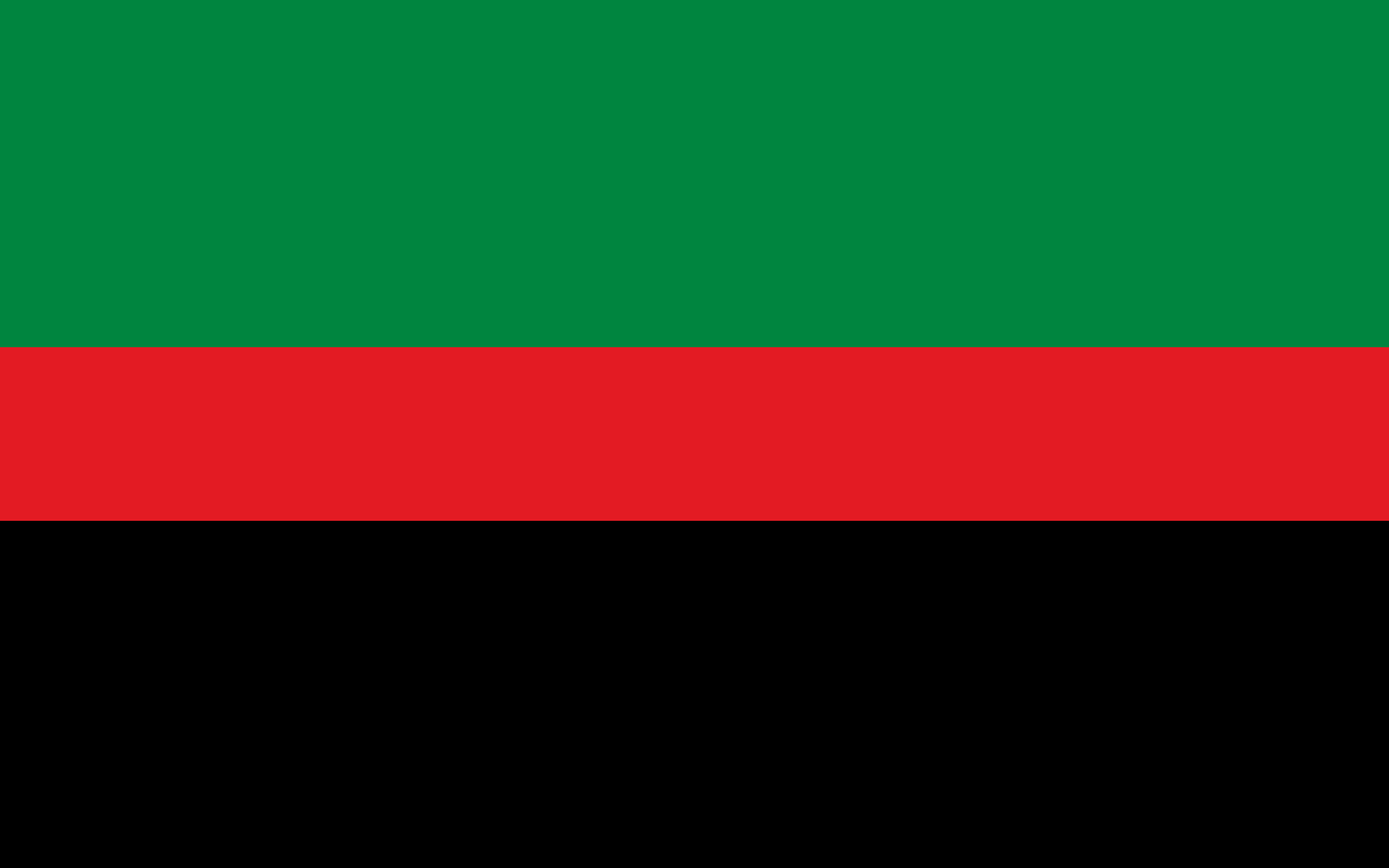More languages
More actions
(Constitution) Tag: Visual edit |
(Using updated parameters (from political_line to political_orientation)) |
||
| Line 1: | Line 1: | ||
{{Infobox political party|name=Republic of New Afrika|logo=New Afrikan flag.png|founded=March 31, 1968|caption=Flag| | {{Infobox political party|name=Republic of New Afrika|logo=New Afrikan flag.png|founded=March 31, 1968|caption=Flag|political_orientation=[[Anti-capitalism]]<br>[[Anti-imperialism]]<br>[[Black nationalism]]}} | ||
The '''Republic of New Afrika''' ('''RNA''') is a black nationalist movement in the [[United States of America|United States]] that aims to create an independent state for the [[African diaspora in the United States|African diaspora]]. It recognizes the sovereignty of indigenous peoples and seeks to negotiate with indigenous and other oppressed nations in [[North America]].<ref name=":1">{{Citation|author=Provisional Government of the Republic of New Afrika|year=1988|title=The Code of Umoja / Black Constitution|title-url=https://www.asetbooks.com/Us/AsetU/Courses/BlackGovernment101/CodeUmoja.html|chapter=}}</ref> | The '''Republic of New Afrika''' ('''RNA''') is a black nationalist movement in the [[United States of America|United States]] that aims to create an independent state for the [[African diaspora in the United States|African diaspora]]. It recognizes the sovereignty of indigenous peoples and seeks to negotiate with indigenous and other oppressed nations in [[North America]].<ref name=":1">{{Citation|author=Provisional Government of the Republic of New Afrika|year=1988|title=The Code of Umoja / Black Constitution|title-url=https://www.asetbooks.com/Us/AsetU/Courses/BlackGovernment101/CodeUmoja.html|chapter=}}</ref> | ||
Revision as of 13:19, 14 November 2022
Republic of New Afrika | |
|---|---|
 Flag | |
| Founded | March 31, 1968 |
| Political orientation | Anti-capitalism Anti-imperialism Black nationalism |
The Republic of New Afrika (RNA) is a black nationalist movement in the United States that aims to create an independent state for the African diaspora. It recognizes the sovereignty of indigenous peoples and seeks to negotiate with indigenous and other oppressed nations in North America.[1]
Foundation
The RNA declared independence in 1968. Its declaration of independence advocates for racial and sex equality, freedom of religion, state ownership of the means of production, and a world revolution.[2]
Constitution
The Code of Umoja, the RNA's constitution, was approved in March 1970.[3]
Legislative branch
The People's Center Council makes laws for the RNA and elects a chairperson and up to three vice chairpersons. The People's Center Council serves a term of three years. The districts of New Afrika each elect a People's District Council.[1]
Executive branch
The People's Revolutionary Leadership Council executes and implements laws. It includes a president and vice presidents who are directly elected.[1]
Principles
There are five basic principles of New Afrikan Political Science:[3]
- Black people should not have had U.S. citizenship forced upon them and it should have been offered instead.
- New Afrikans should be able to choose whether they want to be U.S. citizens or citizens of another country. Either way, they should be given reparations.
- The RNA cannot be independent if the U.S. continues to exist as a capitalist and imperialist power.
- New Afrikans are fighting a war against the U.S. for their self-determination and the self-determination of other oppressed nations.
- Black people must be conscious of their identity as New Afrikans to achieve independence and self-determination.
References
- ↑ 1.0 1.1 1.2 Provisional Government of the Republic of New Afrika (1988). The Code of Umoja / Black Constitution.
- ↑ "The New Afrikan Declaration of Independence" (1968-03-31). New Afrikan Liberation Collective. Archived from the original on 2022-05-10. Retrieved 2022-06-12.
- ↑ 3.0 3.1 Edward Onaci (2020). Free the Land: The Republic of New Afrika and the Pursuit of a Black Nation-State: 'The Fruition of Black Power' (pp. 44–56). [PDF] Chapel Hill: University of North Carolina Press. ISBN 9781469656144
